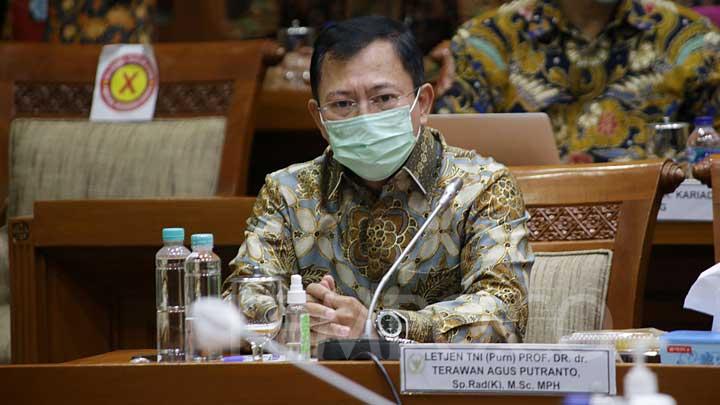Questioning Nusantara Vaccine
Translator
TEMPO
Editor
Laila Afifa
Jumat, 12 Maret 2021 08:35 WIB

TEMPO.CO, Jakarta - The Nusantara vaccine is not suitable for Indonesia, which needs to inoculate large numbers of people. Existing vaccines area laready proven effective for old people and those with other health conditions.
There is no ban on government or private institutions developing Covid-19 vaccines. However, the endeavor to produce a vaccine must be carried out in line with regulations and use standard research procedures. This should also apply to the development of the Nusantara vaccine. According to the person who proposed it, former health minister Terawan Agus Putranto, the Nusantara vaccine was developed for people with comorbidities on the request of President Joko Widodo. However, the process of developing this vaccine has not been transparent. A company from the United States, Aivita Biomedical, was suddenly announced as a partner. The Health Ministry's Reasearch and Development Agency then appointed Rama Emerald Multi Sukses to conduct clinical trial.
The choice of vaccine technology based on dendritics cells - components of blood cells that are a part of immune system - also triggered debate. The problem is that no dendritic cell-based Covid-19 vaccines have entered phase three cilinical trials, yet alone been approved by any drug oversight authority. Furthermore, Aivita Biomedical has no track record as a producer of dendritic cell vaccines. Three of the company's vaccines developed for cell cancer immunotherapy have only just entered phase one or two clinical trials.
There is nothing wrong with a desire to produce a dendritic cell Covid-19 vaccine in Indonesia to equal the achievements of the United States, Germany, Britain, Russia, and China. But it is important to remember that the Nusantara vaccine is not in line with the needs of 181,55 million Indonesians. With a population this large, Indonesia neds mass vaccination, not the type of personal vaccination used for cell cancer therapy proposed by Terawan.
And neither is there a pressing need for an individual vaccine like Nusantara because the vaccines currently being used in many nations have proved to be effective for older people and those with comorbidities. These conventional vaccines are effective at preventing infections of the SARS-CoV-2 virus. These vaccines are lso much cheaper than those developing using dendritic cells.
We could use the same approach as India, which has rolled out a vaccine program that is rapid and porperly targeted. Starting the program three days after Indonesia, as of February 28, the Indian government had vaccinated 14.3 million people. India, with a population of 1.38 billion, is targeting 300 million citizens for vaccination - 270 million of them aged over 50 or with other health conditions - by the end of July.
India's success is a result of the contribution of the Serum Institute of India and Bharat Biotech, which developed a Covid-19 vaccine. This is not a 'sophisticated' vaccine like Niuantara, but a simple vaccine based on dead virus cells. The Serum Institute worked with the University of Oxford - AstraZeneca to produce the Covishield vaccine, while Bharat Biotech produced the Covaxin vaccine together with the Indian National Institute of Virology. The government of India is an ecample of using the scientific approach in policymaking.
The development of the Nusantara vaccine is clearly not a priority and therefore, the government should not continue with it. The resources and funding for this 'private vaccine' could be redirected to the vaccination program or be used to accelerate the ongoing development of the Merah Putih vaccine.
Read the Complete Story in Tempo English Magazine




















